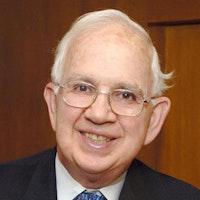If you concentrate on finding whatever is good in every situation, you will discover that your life will suddenly be filled with gratitude, a feeling that nurtures the soul.
If you concentrate on finding whatever is good in every situation, you will discover that your life will suddenly be filled with gratitude, a feeling that nurtures the soul.
Harold S. Kushner

Filled with Gratitude
Theme: Gratefulness
If you concentrate on finding whatever is good in every situation, you will discover that your life will suddenly be filled with gratitude, a feeling that nurtures the soul.
Rabbi Harold Samuel Kushner [1935 - 2023], a contemporary American Rabbi and popular author.
Harold S. Kushner, born in Brooklyn, New York, in 1935, was a pivotal figure in modern spirituality, seamlessly connecting Jewish teachings with contemporary life's trials. His educational and spiritual pursuits took him from Columbia University to the Hebrew University in Jerusalem, and into teaching positions at Clark University and the Jewish Theological Seminary. Kushner's role as Rabbi Laureate of Temple Israel in Natick, Massachusetts, and his editorial work for Conservative Judaism magazine, reflect his significant impact beyond traditional religious forums. Honored by organizations for spreading hope and understanding, Kushner's public theology emphasized the value of forgiveness and community support in navigating life's imperfections.
Kushner's literary legacy, particularly with "When Bad Things Happen to Good People," provided comfort to millions questioning the presence of suffering in a supposedly benevolent world. This work, among others, served as a beacon for those seeking guidance through life's tumults, promoting a message of resilience and the importance of communal bonds in overcoming hardship. Kushner's translation of ancient texts into messages of hope and forgiveness highlighted the vital role of understanding and empathy in leading a fulfilling life. His writing encourages a compassionate approach to the inevitable challenges of existence, underscoring the significance of mutual support.
Kushner consistently emphasized the importance of community in religious life, proposing that faith's true essence lies in love and kindness rather than rigid theology. He argued that religion's core offering is the comfort and belonging it provides, guiding individuals toward a sense of purpose and holiness in daily life. By advocating for a balanced view between religious conviction and secular skepticism, Kushner's teachings and writings continue to resonate, inspiring a path of faith marked by compassion and a deeper understanding of life's profound questions.
When Bad Things Happen To Good People
Kushner, Harold S.. When bad things happen to good people. United Kingdom, Schocken Books, 1981. [Rabbi Harold Kushner.]

Harold S. Kushner
Theme: Gratefulness

About This Harold S. Kushner Quotation [Commentary]
Harold S. Kushner’s insight into gratitude, as shared in “When Bad Things Happen to Good People,” underscores its power to transform the soul amidst personal loss and universal challenges. This quotation champions the practice of seeking good in every situation, proposing that such an endeavor can fill our lives with gratitude. Kushner presents this not as a negation of suffering but as a pathway to resilience, emphasizing the importance of cherishing moments of goodness even in adversity. Through this, gratitude becomes a practice that not only nurtures the soul but also connects us more deeply with the complexities of life.
Kushner advocates for the cultivation of gratitude as a testament to the human spirit’s capacity for hope and meaning, even in hardship. He suggests that acknowledging the good in challenging times is a choice of focus that provides solace and joy, rather than a denial of pain. This act of seeking the positive is framed as a source of strength and a foundation for emotional well-being and spiritual growth. It’s a courageous choice that empowers individuals to navigate life’s difficulties with purpose and hope, illustrating the importance of gratitude in building resilience.
The practice of gratitude, according to Kushner, enriches life by fostering an appreciation for the good amidst challenges, resonating with psychological research on gratitude’s benefits. This approach offers a pathway to emotional healing and spiritual renewal for those facing trials, highlighting gratitude as a means of coping with adversity and finding beauty in life. Kushner’s perspective encourages a reflective appreciation for life’s experiences, suggesting that gratitude can lead to growth and transformation by helping us find meaning and contentment in our daily lives.
Additional Rabbi Harold Kushner Quotations
Related Quotes
Copyright © 2017 – 2026 LuminaryQuotes.com About Us